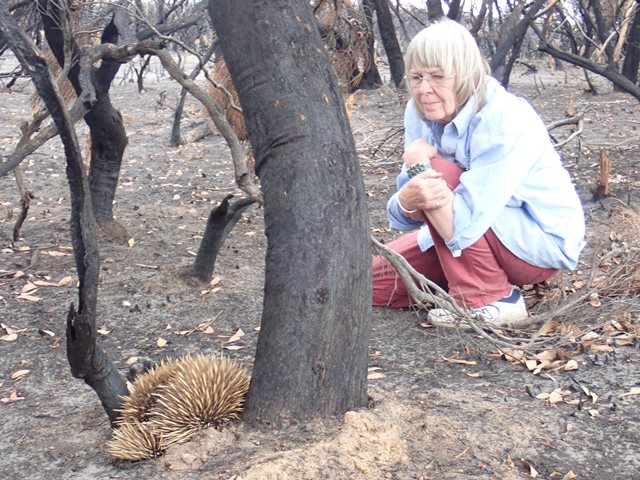Echidna CSI receives funding to investigate the impact of bushfires on echidnas
As bushfire recovery begins on Kangaroo Island, it's important remember the recovery of native flora and fauna.
The Foundation for National Parks & Wildlife (FNPW) has selected the Echidna CSI project╠²ŌĆ£Investigating the impact of bushfires on Kangaroo Island echidna diet and healthŌĆØ╠²for funding through the FNPW Bushfire . The project has been allocated a total of $10,000.00.
Echidnas are an iconic Australian mammal, however little was known about their wild populations and many key aspects of their biology prior to EchidnaCSI. Echidnas are in decline, with╠² threatened habitats, feral cats and roadkill, with the Kangaroo Island population endangered.
However, EchidnaCSI encourages the public to aid in echidna conservation by taking photos of echidnas through a and collecting echidna scats to better understand wild populationsŌĆÖ habitat, diet and health. With 8,000+ downloads, the public have submitted 8,000+ sightings across Australia and collected 400 echidna scats. It is the largest dataset and material collected by any project for echidnas.
"We are╠²interested in the diet of echidnas in the burnt areas and how this affects their health. This gives us an insight into what insect species are present after burning. In this community-based project, Echidna CSI have the opportunity to perform both field and molecular research to investigate how echidnas are affected by the environmental change and their role in the recovery process" said Miss
"EchidnaCSI will monitor and investigate the effects of fires on echidnas and aid in rehabilitation. The Kangaroo Island bushfires have devastated much of the island and in places, burnt with unprecedented intensity. Despite this, echidnas have been observed in the burnt areas shortly after the fires." she said.
Echidnas usually have a high survival rate with bushfires as they can bury underground, go into a hibernation-like state and resurface once the fire has passed. However, as these fires were unprecedented in their intensity, the EchidnaCSI platform asks for the publicŌĆÖs help in order to understand how echidnas have survived these fires.
The project is supervised by Professor . Support Echidna CSI by making a gift.

Newsletter & social media
Join us for a sensational mix of news, events and research at the Environment Institute. Find out about╠²new initiatives and╠²share with your friends what's happening.
╠²╠²╠²

